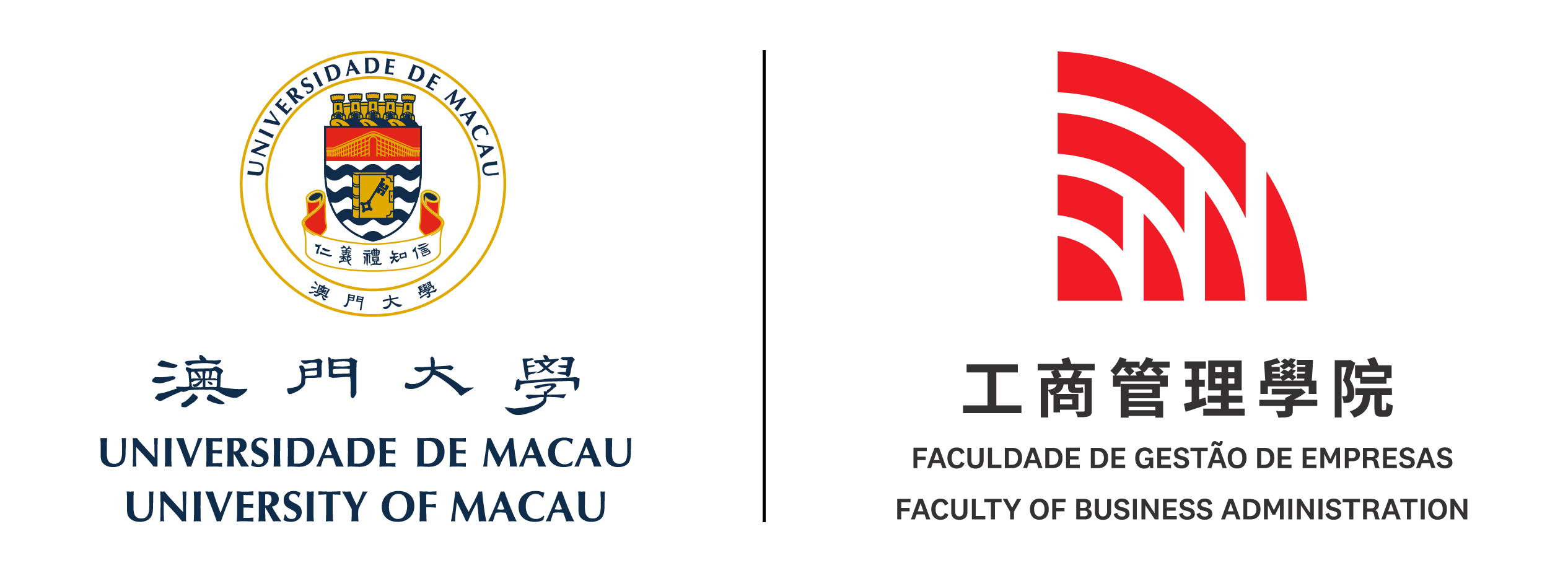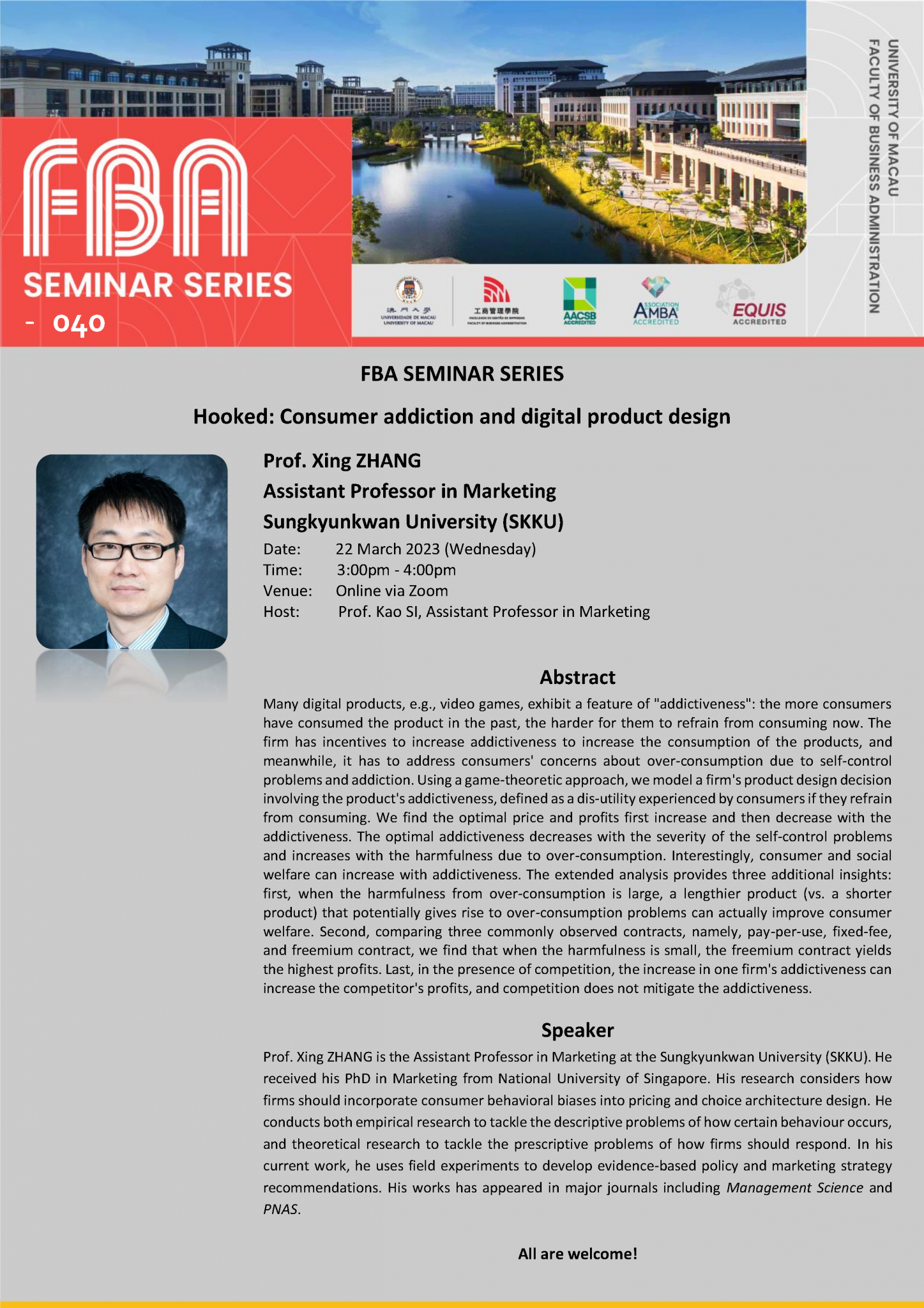FBA SEMINAR SERIES
Hooked: Consumer addiction and digital product design
Prof. Xing ZHANG, Assistant Professor in Marketing, Sungkyunkwan University
Date: 22 March 2023 (Wednesday)
Time: 3:00pm – 4:00pm
Venue: Online via Zoom
Host: Prof. Kao SI, Assistant Professor of Marketing
Zoom Link: https://umac.zoom.us/j/99913174728
Abstract
Many digital products, e.g., video games, exhibit a feature of “addictiveness”: the more consumers have consumed the product in the past, the harder for them to refrain from consuming now. The firm has incentives to increase addictiveness to increase the consumption of the products, and meanwhile, it has to address consumers’ concerns about over-consumption due to self-control problems and addiction. Using a game-theoretic approach, we model a firm’s product design decision involving the product’s addictiveness, defined as a dis-utility experienced by consumers if they refrain from consuming. We find the optimal price and profits first increase and then decrease with the addictiveness. The optimal addictiveness decreases with the severity of the self-control problems and increases with the harmfulness due to over-consumption. Interestingly, consumer and social welfare can increase with addictiveness. The extended analysis provides three additional insights: first, when the harmfulness from over-consumption is large, a lengthier product (vs. a shorter product) that potentially gives rise to over-consumption problems can actually improve consumer welfare. Second, comparing three commonly observed contracts, namely, pay-per-use, fixed-fee, and freemium contract, we find that when the harmfulness is small, the freemium contract yields the highest profits. Last, in the presence of competition, the increase in one firm’s addictiveness can increase the competitor’s profits, and competition does not mitigate the addictiveness.
Speaker
Prof. Xing ZHANG is the Assistant Professor in Marketing at the Sungkyunkwan University (SKKU). He received his PhD in Marketing from National University of Singapore. His research considers how firms should incorporate consumer behavioral biases into pricing and choice architecture design. He conducts both empirical research to tackle the descriptive problems of how certain behaviour occurs, and theoretical research to tackle the prescriptive problems of how firms should respond. In his current work, he uses field experiments to develop evidence-based policy and marketing strategy recommendations. His works has appeared in major journals including Management Science and PNAS.
All are welcome!


